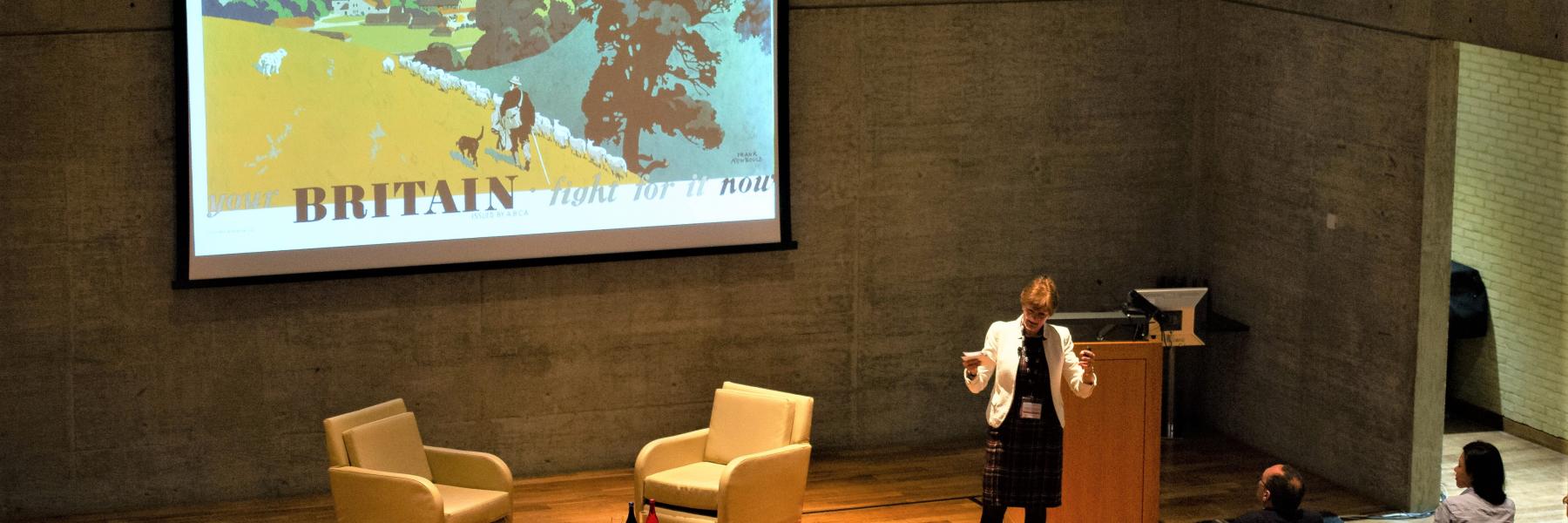
Estates Gazette Peter Wilson Lecture - 26 February 2019
Estates Gazette’s prestigious Peter Wilson Lecture is held annually at Fitzwilliam College in memory of Peter Wilson, the former owner of the Estates Gazette and Honorary Fellow of Fitzwilliam College. It recognises the continuing role played by the Wilson family in supporting students and academics in the field of Land Economy at Fitzwilliam College.
This year Dame Fiona Reynolds, Master of Emmanuel College and the National Trust’s former Director-General, delivered an impassioned call-to arms on the importance of beauty in a modern landscape and in development.
By Emma Rosser | Residential | 11-03-2019 | 11:40
Ghetto estates and a lack of affordable housing is a failure of public policy, according to Dame Fiona Reynolds, Master of Emmanuel College Cambridge and former Director-General of the National Trust.
“If we really want to house people who can’t afford to buy, then we need to find a way of using public resources and building differently,” she said at EG’s Peter Wilson Lecture, given in memory of the former owner of EG, which was hosted by Fitzwilliam College Cambridge and supported by Savills.
Reynolds said private housebuilders had tried to compensate for the dearth of public housing.
“Sometimes it’s a ghetto, sometimes it’s integrated. We don’t really know what works, but it’s not delivering.”
She added: “It may need to be better integrated with private market housing, but I think it’s a failure of public policy and not a failure of the market.”
Reynolds said long-term goals of sustainability and beauty were essential in all development. She noted the great need not only for affordable housing, but for housing in general alongside protection of green spaces, and said planning reform and creative thinking was required to deliver this.
“We always reduce it to a choice between either really grotty brownfield, poisoned land, or completely fresh greenfield, or nothing.
“We need to find new mechanisms to remodel and to build more interestingly, with a lot more public engagement and public involvement. There are an awful lot of parts of our urban areas where densification is possible and compatible with a good-quality of life and beauty.”
Planning reform
Delivering homes and, at the same time, protecting the green belt is one of the “big conundrums”, said Reynolds.
But it can be done. She pointed to Create Streets and its founder, Nicholas Boys‑Smith, who has big ideas for remodelling London and advocates planning reform, including easier change-of-use classes and high-street redevelopment.
“Planning policy has had a very strict control over the use classes, and as a result we segregated housing from retail, urban industrial and other commercial activities,” said Reynolds. “We now realise that for sustainability reasons we need to bring them back together again. We need mixed uses and we need people to be able to live above a shop or have commercial activity and housing all together.”
She pointed to shifts in policy, but said this process needed to accelerate: “That’s one of the big things that needs to change now, to build in a genuinely integrated way, as they do in many European countries.”
Reynolds also pointed to the findings of Sir Oliver Letwin’s review, which recommended local authorities take on masterplanner roles, enable diversity in development, and give opportunity to SMEs to break the monopoly of housebuilders.
Building beautiful
Reynolds said beauty should not be an “add-on extra”, but a factor from the start, enabling improved public buy-in. She said: “Beauty can often be a means to deliver a better outcome, rather than a choice between no development and development.”
“Why is it that expensive thing at the end of the day that you can’t really afford, because everything else costs too much? Beauty is not just aesthetics, it is a way of looking at the world. Understanding the qualitative bit as well as the quantitative bit really does matter.”
She said cultural ambition should play a role from the early stages of any development, not just technical. There should be multiple goals: health, environment, infrastructure and how this all connects.
Joined-up thinking
Delivering multiple objectives requires “joined-up thinking” in government, Reynolds said.
“I worked in the Cabinet Office when a joined-up government was all the rage in the late 1990s,” she said. This structure required good leadership and honesty, she added. “We are not in a place where we are seeing a lot of that going on, if I’m honest.
“I think we are in a difficult stage, but arguably post-Brexit could be the chance for a rebirth of some of those ideas and the recapturing of opportunity and optimism.
“This has been a horrible period of dismal England and a lot of tension. There are some big ideas about beauty, quality of life and how people live together. It could be a really exciting chance.”
To send feedback, email emma.rosser@egi.co.uk or tweet @EmmaARosser or @estatesgazette
Photos © Matthew Power Photography